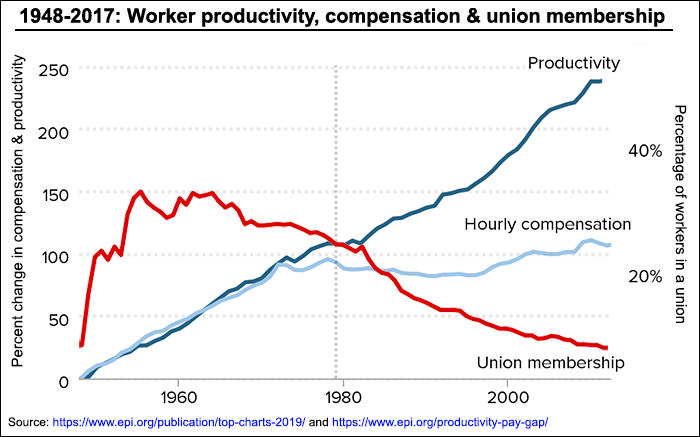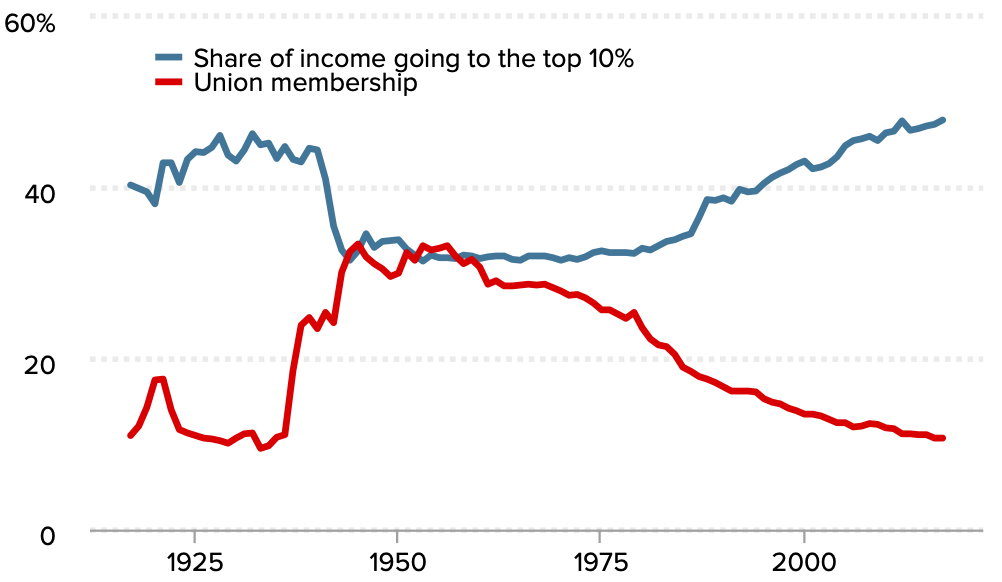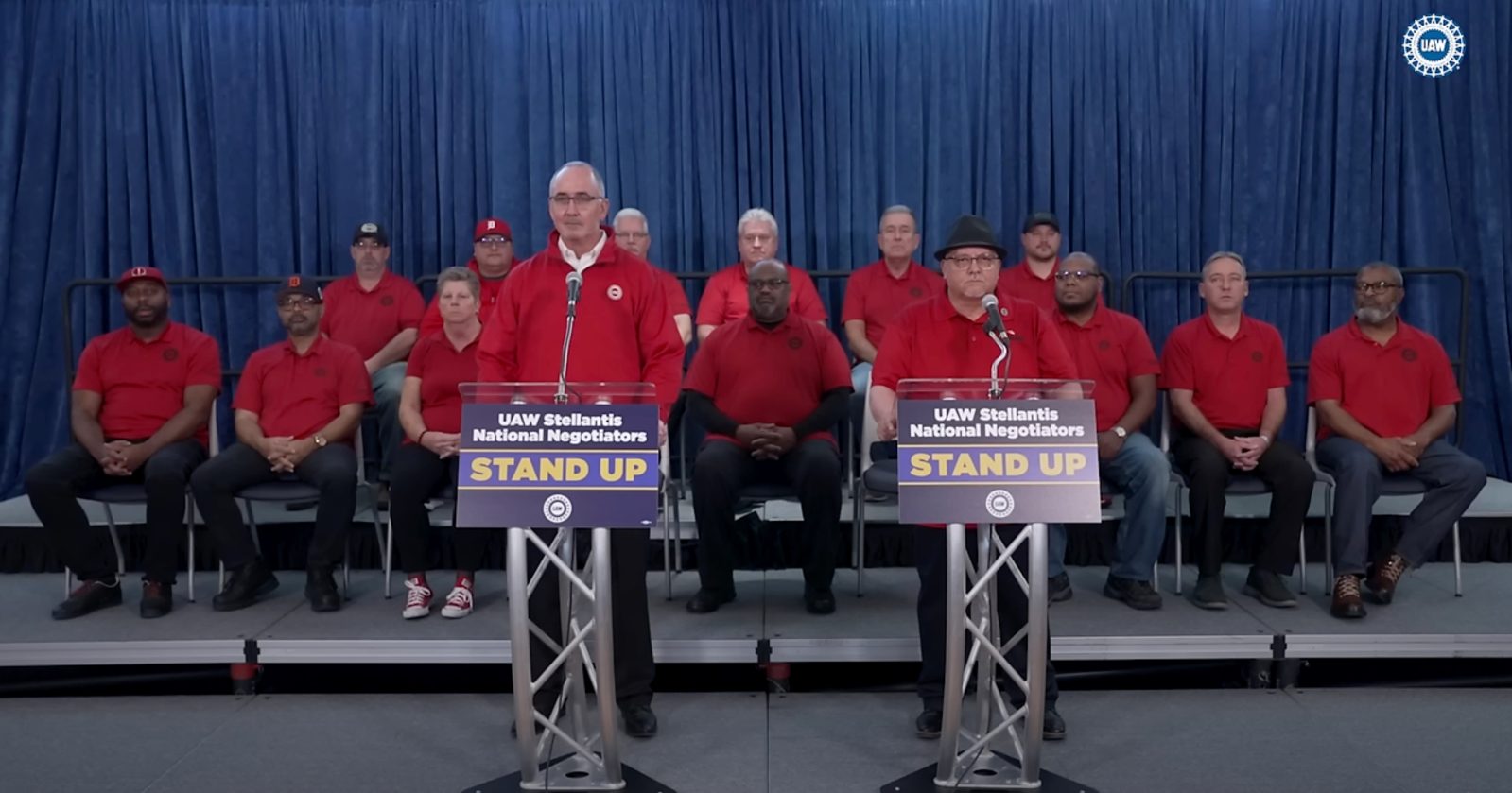Honda has announced that it will raise pay of some US workers by 11%, after UAW’s historic strike wins where it earned 25%+ pay increases at all of the “Big Three” American automakers. After Toyota did the same last week, this shows how union wins have a tendency to affect entire industries, raising conditions for even non-unionized companies who have to compete for workers.
The news today comes from Bloomberg, who saw a Honda company memo detailing the pay increases. Not only will associates on pay progressions gain a base pay increase of 11% starting in January, but Honda will reduce the amount of time it takes to reach the top wage and add more than 10 new benefits for workers including childcare and student loan benefits.
The base pay increase is significantly smaller than the 25%+ increases which UAW won in its deals, but the shift to a faster progression to top wages echoes one of the main points of UAW’s contract negotiations, which earned similar progression speed increases at the Big Three as well.
Honda said that “Honda continuously reviews our total rewards packages to ensure we remain competitive within our industry,” and “we will continue to look for opportunities to ensure that we provide an excellent employment experience for Honda associates.”
But this isn’t the only similar announcement from a non-unionized company, as Toyota took the opportunity to hike pay of most of its US assembly workers by 9.2% immediately after the UAW deals were announced. After Toyota’s pay hike, UAW President Shawn Fain recognized that it was a response to his union’s new contract, saying “Toyota, if they were doing it out of the kindness of their heart, they could have chosen to do it a year ago.”
UAW wants to maintain this momentum, and has openly stated that it wants to unionize more non-unionized companies in the US. In UAW’s victory announcement, Fain said that that it plans to come back to the bargaining table in 2028, on May 1, otherwise known as May Day or International Workers’ Day, but that time it “won’t just be with a Big Three, but with a Big Five or Big Six.”
At the time he didn’t specify who exactly those extra two or three companies would be, but later, the names of both Toyota and Tesla have come up. And just yesterday, President Biden said that he would support UAW’s push to unionize Tesla and Toyota ahead of a meeting with Fain, with Honda’s pay raise announcement coming right after that well-publicized meeting.
Honda has not been mentioned yet, but as one of the best-selling auto companies in the US, it could be a natural choice.
Electrek’s Take
Unions are having a bit of a moment in the US, reaching their highest popularity ever since surveys started asking about them.
Much of union popularity has been driven by COVID-related disruptions across the economy, with workers becoming unsatisfied due to mistreatment (labeling everyone “essential,” companies ending work-from-home) and with the labor market getting tighter with over 1 million Americans dead from the virus and another 2-4 million (and counting) out of work due to long COVID.
Unions have seized on this dissatisfaction to build momentum in the labor movement, with unions striking successfully across many industries, and organizers starting to organize workforces that had previously been non-union.
And announcements like Honda’s and Toyota’s show how high union membership has a tendency to improve working conditions for every worker, and why the US has had gradually lower pay and worse conditions over the decades since union membership peaked. It’s really not hard to see the influence when you plot these trends against each other.


It’s quite clear that lower union membership has resulted in lower inflation-adjusted compensation for workers, even as productivity has skyrocketed. As workers have produced more and more value for their companies, those earnings have gone more and more to their bosses rather than to the workers who produce that value. And it all began in the 80s, around the time of Reagan – a timeline that should be familiar to those who study social ills in America.
Conversely, these two actions show the impact that unionized workers can have not only for their own shops, but for non-unionized workplaces as well. If workers gain a big pay increase in one part of an industry, all of a sudden workers at other companies might start thinking they want to jump ship, move over to another company where they can get better pay or better conditions. To retain workers, companies then need to raise wages.
In addition, non-unionized companies may want to keep their employees non-unionized, and thus see the pay raises as a way to satiate their employees into maintaining the status quo. If workers at Toyota see that UAW workers are getting huge pay increases and lots of additional benefits, maybe they’ll think that UAW can bring them the same benefits, and start talking about unionizing.
Companies generally think they should avoid having a unionized workforce because a unionized workforce means more pay for workers, which to them means less pay for the executives and shareholders making the decisions. So they’ll offer whatever carrots they can to keep workers from organizing to have their voice heard collectively, rather than individually. Individually, workers have little influence over what their pay and conditions should be.
All of this isn’t just true in the US, but looking internationally. If you look into other countries with high levels of labor organization, they tend to have more fair wealth distribution across the economy, and more ability for workers to get their fair share.
We’re seeing this in Sweden right now, as Tesla workers are striking for better conditions Since Sweden has a 90% collective bargaining coverage, it tends to have a happy and well-paid workforce, and it seems clear that these two things are correlated. And while that strike is continuing and we haven’t yet seen the effects of it, most observers think that the workers will eventually get what they want, since collective bargaining is so strong in that country.
These are all reasons why, as I’ve mentioned in many of these UAW-related articles, that I’m pro-union. And I think that everyone should be – it only makes sense that people should have their interests collectively represented, and that people should be able to join together to support each other and exercise their power collectively, instead of individually.
This is precisely what companies do with industry organizations, lobby organizations, chambers of commerce, and so on. And it’s what people do when sorting themselves into local, state, or national governments. So naturally, workers should do the same. It’s just fair.
And it’s clear that it helps – so even if you aren’t unionized yourself, or have a job that doesn’t lend well to unionization, you should probably be happy about other union efforts since they tend to buoy entire economies for the people who are creating the value in the first place: the workers.
FTC: We use income earning auto affiliate links. More.








